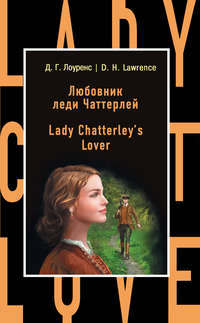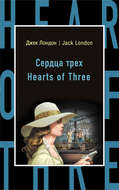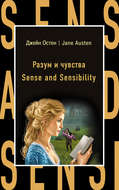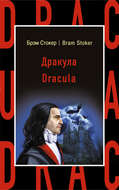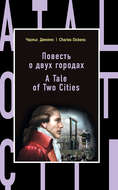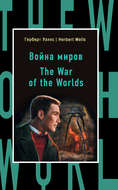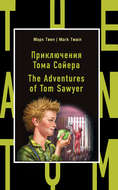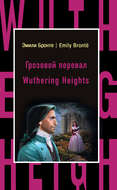Kitobni o'qish: «Любовник леди Чаттерлей / Lady Chatterley's Lover»
© Бурмакова О. П., комментарии и словарь, 2017
© ООО «Издательство «Эксмо», 2017
* * *
«Языковая компетенция – вещь капризная. Это как балет, как умение играть на музыкальном инструменте, как гимнастика, как любое действие, которое требует навыка. Либо вы идете вперед, либо начинаете сползать назад.
А самое главное – не прекращать изучение языка. Это может быть чтение оригинальной литературы. Любите читать про любовь – читайте про любовь, любите фантастику – читайте фантастику. Но читайте обязательно!»
Н. А. Бонк, лингвист, педагог, автор наиболее популярных в России учебников английского языка
Chapter 1
Ours is essentially a tragic age, so we refuse to take it tragically. The cataclysm has happened, we are among the ruins, we start to build up new little habitats, to have new little hopes. It is rather hard work: there is now no smooth road into the future: but we go round, or scramble over the obstacles. We’ve got to live, no matter how many skies have fallen.
This was more or less Constance Chatterley’s position. The war1 had brought the roof down over her head. And she had realized that one must live and learn.
She married Clifford Chatterley in 1917, when he was home for a month on leave. They had a month’s honeymoon. Then he went back to Flanders:2 to be shipped over to England again six months later, more or less in bits. Constance, his wife, was then twenty-three years old, and he was twenty-nine.
His hold on life was marvellous. He didn’t die, and the bits seemed to grow together again. For two years he remained in the doctor’s hands. Then he was pronounced a cure, and could return to life again, with the lower half of his body, from the hips down, paralysed for ever.
This was in 1920. They returned, Clifford and Constance, to his home, Wragby Hall, the family “seat”. His father had died, Clifford was now a baronet,3 Sir Clifford, and Constance was Lady Chatterley.4 They came to start housekeeping and married life in the rather forlorn home of the Chatterleys on a rather inadequate income. Clifford had a sister, but she had departed. Otherwise there were no near relatives. The elder brother was dead in the war. Crippled5 for ever, knowing he could never have any children, Clifford came home to the smoky Midlands to keep the Chatterley name alive while he could.
He was not really downcast. He could wheel himself about in a wheeled chair, and he had a bath-chair with a small motor attachment, so he could drive himself slowly round the garden and into the line melancholy park, of which he was really so proud, though he pretended to be flippant about it.
Having suffered so much, the capacity for suffering had to some extent left him. He remained strange and bright and cheerful, almost, one might say, chirpy, with his ruddy, healthy-looking face, and his pale-blue, challenging bright eyes. His shoulders were broad and strong, his hands were very strong. He was expensively dressed, and wore handsome neckties from Bond Street.6 Yet still in his face one saw the watchful look, the slight vacancy of a cripple.
He had so very nearly lost his life, that what remained was wonderfully precious to him. It was obvious in the anxious brightness of his eyes, how proud he was, after the great shock, of being alive. But he had been so much hurt that something inside him had perished, some of his feelings had gone. There was a blank of insentience.
Constance, his wife, was a ruddy, country-looking girl with soft brown hair and sturdy body, and slow movements, full of unusual energy. She had big, wondering eyes, and a soft mild voice, and seemed just to have come from her native village. It was not so at all. Her father was the once well-known R. A.,7 old Sir Malcolm Reid. Her mother had been one of the cultivated Fabians8 in the palmy, rather pre-Raphaelite9 days. Between artists and cultured socialists, Constance and her sister Hilda had had what might be called an aesthetically unconventional upbringing. They had been taken to Paris and Florence and Rome to breathe in art, and they had been taken also in the other direction, to the Hague and Berlin, to great Socialist conventions, where the speakers spoke in every civilized tongue, and no one was abashed.
The two girls, therefore, were from an early age not the least daunted by either art or ideal politics. It was their natural atmosphere. They were at once cosmopolitan and provincial, with the cosmopolitan provincialism of art that goes with pure social ideals.
They had been sent to Dresden at the age of fifteen, for music among other things. And they had had a good time there. They lived freely among the students, they argued with the men over philosophical, sociological and artistic matters, they were just as good as the men themselves: only better, since they were women. And they tramped off to the forests with sturdy youths bearing guitars, twang-twang! They sang the Wandervogel10 songs, and they were free. Free! That was the great word. Out in the open world, out in the forests of the morning, with lusty and splendid-throated young fellows, free to do as they liked, and – above all – to say what they liked. It was the talk that mattered supremely: the impassioned interchange of talk. Love was only a minor accompaniment.
Both Hilda and Constance had had their tentative love-affairs by the time they were eighteen. The young men with whom they talked so passionately and sang so lustily and camped under the trees in such freedom wanted, of course, the love connexion. The girls were doubtful, but then the thing was so much talked about, it was supposed to be so important. And the men were so humble and craving. Why couldn’t a girl be queenly, and give the gift of herself?
So they had given the gift of themselves, each to the youth with whom she had the most subtle and intimate arguments. The arguments, the discussions were the great thing: the love-making and connexion were only a sort of primitive reversion and a bit of an anti-climax. One was less in love with the boy afterwards, and a little inclined to hate him, as if he had trespassed on one’s privacy and inner freedom. For, of course, being a girl, one’s whole dignity and meaning in life consisted in the achievement of an absolute, a perfect, a pure and noble freedom. What else did a girl’s life mean? To shake off the old and sordid connexions and subjections.
And however one might sentimentalize it, this sex business was one of the most ancient, sordid connexions and subjections. Poets who glorified it were mostly men. Women had always known there was something better, something higher. And now they knew it more definitely than ever. The beautiful pure freedom of a woman was infinitely more wonderful than any sexual love. The only unfortunate thing was that men lagged so far behind women in the matter. They insisted on the sex thing like dogs.
And a woman had to yield. A man was like a child with his appetites. A woman had to yield him what he wanted, or like a child he would probably turn nasty and flounce away and spoil what was a very pleasant connexion. But a woman could yield to a man without yielding her inner, free self. That the poets and talkers about sex did not seem to have taken sufficiently into account. A woman could take a man without really giving herself away. Certainly she could take him without giving herself into his power. Rather she could use this sex thing to have power over him. For she only had to hold herself back in sexual intercourse, and let him finish and expend himself without herself coming to the crisis: and then she could prolong the connexion and achieve her orgasm and her crisis while he was merely her tool.
Both sisters had had their love experience by the time the war came, and they were hurried home. Neither was ever in love with a young man unless he and she were verbally very near: that is unless they were profoundly interested, talking to one another. The amazing, the profound, the unbelievable thrill there was in passionately talking to some really clever young man by the hour, resuming day after day for months… this they had never realized till it happened! The paradisal promise: Thou shalt have men to talk to! – had never been uttered. It was fulfilled before they knew what a promise it was.
And if after the roused intimacy of these vivid and soul-enlightened discussions the sex thing became more or less inevitable, then let it. It marked the end of a chapter. It had a thrill of its own too: a queer vibrating thrill inside the body, a final spasm of self-assertion, like the last word, exciting, and very like the row of asterisks that can be put to show the end of a paragraph, and a break in the theme.
When the girls came home for the summer holidays of 1913, when Hilda was twenty and Connie eighteen, their father could see plainly that they had had the love experience.
L’amour avait passe par la,11 as somebody puts it. But he was a man of experience himself, and let life take its course. As for the mother a nervous invalid in the last few months of her life, she wanted her girls to be “free”, and to “fulfil themselves”. She herself had never been able to be altogether herself: it had been denied her. Heaven knows why, for she was a woman who had her own income and her own way. She blamed her husband. But as a matter of fact, it was some old impression of authority on her own mind or soul that she could not get rid of. It had nothing to do with Sir Malcolm, who left his nervously hostile, high-spirited wife to rule her own roost, while he went his own way.
So the girls were “free”, and went back to Dresden, and their music, and the university and the young men. They loved their respective young men, and their respective young men loved them with all the passion of mental attraction. All the wonderful things the young men thought and expressed and wrote, they thought and expressed and wrote for the young women. Connie’s young man was musical, Hilda’s was technical. But they simply lived for their young women. In their minds and their mental excitements, that is. Somewhere else they were a little rebuffed, though they did not know it.
It was obvious in them too that love had gone through them: that is, the physical experience. It is curious what a subtle but unmistakable transmutation it makes, both in the body of men and women: the woman more blooming, more subtly rounded, her young angularities softened, and her expression either anxious or triumphant: the man much quieter, more inward, the very shapes of his shoulders and his buttocks less assertive, more hesitant.
In the actual sex-thrill within the body, the sisters nearly succumbed to the strange male power. But quickly they recovered themselves, took the sex-thrill as a sensation, and remained free. Whereas the men, in gratitude to the woman for the sex experience, let their souls go out to her. And afterwards looked rather as if they had lost a shilling and found sixpence. Connie’s man could be a bit sulky, and Hilda’s a bit jeering. But that is how men are! Ungrateful and never satisfied. When you don’t have them they hate you because you won’t; and when you do have them they hate you again, for some other reason. Or for no reason at all, except that they are discontented children, and can’t be satisfied whatever they get, let a woman do what she may.
However, came the war, Hilda and Connie were rushed home again after having been home already in May, to their mother’s funeral. Before Christmas of 1914 both their German young men were dead: whereupon the sisters wept, and loved the young men passionately, but underneath forgot them. They didn’t exist any more.
Both sisters lived in their father’s, really their mother’s, Kensington house mixed with the young Cambridge group, the group that stood for “freedom” and flannel trousers, and flannel shirts open at the neck, and a well-bred sort of emotional anarchy, and a whispering, murmuring sort of voice, and an ultra-sensitive sort of manner. Hilda, however, suddenly married a man ten years older than herself, an elder member of the same Cambridge group, a man with a fair amount of money, and a comfortable family job in the government: he also wrote philosophical essays. She lived with him in a smallish house in Westminster, and moved in that good sort of society of people in the government who are not tip-toppers,12 but who are, or would be, the real intelligent power in the nation: people who know what they’re talking about, or talk as if they did.
Connie did a mild form of war-work, and consorted with the flannel-trousers Cambridge intransigents, who gently mocked at everything, so far. Her “friend” was a Clifford Chatterley, a young man of twenty-two, who had hurried home from Bonn, where he was studying the technicalities of coal-mining. He had previously spent two years at Cambridge. Now he had become a first lieutenant in a smart regiment, so he could mock at everything more becomingly in uniform.
Clifford Chatterley was more upper-class than Connie. Connie was well-to-do intelligentsia, but he was aristocracy. Not the big sort, but still it. His father was a baronet, and his mother had been a viscount’s13 daughter.
But Clifford, while he was better bred than Connie, and more “society”, was in his own way more provincial and more timid. He was at his ease in the narrow “great world”, that is, landed aristocracy society, but he was shy and nervous of all that other big world which consists of the vast hordes of the middle and lower classes, and foreigners. If the truth must be told, he was just a little bit frightened of middle-and lower-class humanity, and of foreigners not of his own class. He was, in some paralysing way, conscious of his own defencelessness, though he had all the defence of privilege. Which is curious, but a phenomenon of our day.
Therefore the peculiar soft assurance of a girl like Constance Reid fascinated him. She was so much more mistress of herself in that outer world of chaos than he was master of himself.
Nevertheless he too was a rebel: rebelling even against his class. Or perhaps rebel is too strong a word; far too strong. He was only caught in the general, popular recoil of the young against convention and against any sort of real authority. Fathers were ridiculous: his own obstinate one supremely so. And governments were ridiculous: our own wait-and-see sort especially so. And armies were ridiculous, and old buffers of generals altogether, the red-faced Kitchener14 supremely. Even the war was ridiculous, though it did kill rather a lot of people.
In fact everything was a little ridiculous, or very ridiculous: certainly everything connected with authority, whether it were in the army or the government or the universities, was ridiculous to a degree. And as far as the governing class made any pretensions to govern, they were ridiculous too. Sir Geoffrey, Clifford’s father, was intensely ridiculous, chopping down his trees, and weeding men out of his colliery to shove them into the war; and himself being so safe and patriotic; but, also, spending more money on his country than he’d got.
When Miss Chatterley – Emma – came down to London from the Midlands to do some nursing work, she was very witty in a quiet way about Sir Geoffrey and his determined patriotism. Herbert, the elder brother and heir, laughed outright, though it was his trees that were falling for trench props. But Clifford only smiled a little uneasily. Everything was ridiculous, quite true. But when it came too close and oneself became ridiculous too…? At least people of a different class, like Connie, were earnest about something. They believed in something.
They were rather earnest about the Tommies,15 and the threat of conscription, and the shortage of sugar and toffee for the children. In all these things, of course, the authorities were ridiculously at fault. But Clifford could not take it to heart. To him the authorities were ridiculous ab ovo,16 not because of toffee or Tommies.
And the authorities felt ridiculous, and behaved in a rather ridiculous fashion, and it was all a mad hatter’s tea-party17 for a while. Till things developed over there, and Lloyd George18 came to save the situation over here. And this surpassed even ridicule, the flippant young laughed no more.
In 1916 Herbert Chatterley was killed, so Clifford became heir. He was terrified even of this. His importance as son of Sir Geoffrey, and child of Wragby, was so ingrained in him, he could never escape it. And yet he knew that this too, in the eyes of the vast seething world, was ridiculous. Now he was heir and responsible for Wragby. Was that not terrible? and also splendid and at the same time, perhaps, purely absurd?
Sir Geoffrey would have none of the absurdity. He was pale and tense, withdrawn into himself, and obstinately determined to save his country and his own position, let it be Lloyd George or who it might. So cut off he was, so divorced from the England that was really England, so utterly incapable, that he even thought well of Horatio Bottomley.19 Sir Geoffrey stood for England and Lloyd George as his forebears had stood for England and St George: and he never knew there was a difference. So Sir Geoffrey felled timber and stood for Lloyd George and England, England and Lloyd George.
And he wanted Clifford to marry and produce an heir. Clifford felt his father was a hopeless anachronism. But wherein was he himself any further ahead, except in a wincing sense of the ridiculousness of everything, and the paramount ridiculousness of his own position? For willy-nilly he took his baronetcy and Wragby with the last seriousness.
The gay excitement had gone out of the war… dead. Too much death and horror. A man needed support and comfort. A man needed to have an anchor in the safe world. A man needed a wife.
The Chatterleys, two brothers and a sister, had lived curiously isolated, shut in with one another at Wragby, in spite of all their connexions. A sense of isolation intensified the family tie, a sense of the weakness of their position, a sense of defencelessness, in spite of, or because of, the title and the land. They were cut off from those industrial Midlands in which they passed their lives. And they were cut off from their own class by the brooding, obstinate, shut-up nature of Sir Geoffrey, their father, whom they ridiculed, but whom they were so sensitive about.
The three had said they would all live together always. But now Herbert was dead, and Sir Geoffrey wanted Clifford to marry. Sir Geoffrey barely mentioned it: he spoke very little. But his silent, brooding insistence that it should be so was hard for Clifford to bear up against.
But Emma said No! She was ten years older than Clifford, and she felt his marrying would be a desertion and a betrayal of what the young ones of the family had stood for.
Clifford married Connie, nevertheless, and had his month’s honeymoon with her. It was the terrible year 1917, and they were intimate as two people who stand together on a sinking ship. He had been virgin when he married: and the sex part did not mean much to him. They were so close, he and she, apart from that. And Connie exulted a little in this intimacy which was beyond sex, and beyond a man’s “satisfaction”. Clifford anyhow was not just keen on his “satisfaction”, as so many men seemed to be. No, the intimacy was deeper, more personal than that. And sex was merely an accident, or an adjunct, one of the curious obsolete, organic processes which persisted in its own clumsiness, but was not really necessary. Though Connie did want children: if only to fortify her against her sister-in-law Emma.
But early in 1918 Clifford was shipped home smashed, and there was no child. And Sir Geoffrey died of chagrin.
Chapter 2
Connie and Clifford came home to Wragby in the autumn of 1920. Miss Chatterley, still disgusted at her brother’s defection, had departed and was living in a little flat in London.
Wragby was a long low old house in brown stone, begun about the middle of the eighteenth century, and added on to, till it was a warren of a place without much distinction. It stood on an eminence in a rather line old park of oak trees, but alas, one could see in the near distance the chimney of Tevershall pit, with its clouds of steam and smoke, and on the damp, hazy distance of the hill the raw straggle of Tevershall village, a village which began almost at the park gates, and trailed in utter hopeless ugliness for a long and gruesome mile: houses, rows of wretched, small, begrimed, brick houses, with black slate roofs for lids, sharp angles and wilful, blank dreariness.
Connie was accustomed to Kensington or the Scotch hills or the Sussex downs: that was her England. With the stoicism of the young she took in the utter, soulless ugliness of the coal-and-iron Midlands20 at a glance, and left it at what it was: unbelievable and not to be thought about. From the rather dismal rooms at Wragby she heard the rattle-rattle of the screens at the pit, the puff of the winding-engine, the clink-clink of shunting trucks, and the hoarse little whistle of the colliery locomotives. Tevershall pit-bank21 was burning, had been burning for years, and it would cost thousands to put it out. So it had to burn. And when the wind was that way, which was often, the house was full of the stench of this sulphurous combustion of the earth’s excrement. But even on windless days the air always smelt of something under-earth: sulphur, iron, coal, or acid. And even on the Christmas roses the smuts settled persistently, incredible, like black manna from the skies of doom.22
Well, there it was: fated like the rest of things! It was rather awful, but why kick? You couldn’t kick it away. It just went on. Life, like all the rest! On the low dark ceiling of cloud at night red blotches burned and quavered, dappling and swelling and contracting, like burns that give pain. It was the furnaces. At first they fascinated Connie with a sort of horror; she felt she was living underground. Then she got used to them. And in the morning it rained.
Clifford professed to like Wragby better than London. This country had a grim will of its own, and the people had guts. Connie wondered what else they had: certainly neither eyes nor minds. The people were as haggard, shapeless, and dreary as the countryside, and as unfriendly. Only there was something in their deep-mouthed slurring of the dialect, and the thresh-thresh of their hob-nailed pit-boots as they trailed home in gangs on the asphalt from work, that was terrible and a bit mysterious.
There had been no welcome home for the young squire, no festivities, no deputation, not even a single flower. Only a dank ride in a motor-car up a dark, damp drive, burrowing through gloomy trees, out to the slope of the park where grey damp sheep were feeding, to the knoll where the house spread its dark brown facade, and the housekeeper and her husband were hovering, like unsure tenants on the face of the earth, ready to stammer a welcome.
There was no communication between Wragby Hall and Tevershall village, none. No caps were touched, no curtseys bobbed.23 The colliers merely stared; the tradesmen lifted their caps to Connie as to an acquaintance, and nodded awkwardly to Clifford; that was all. Gulf impassable, and a quiet sort of resentment on either side. At first Connie suffered from the steady drizzle of resentment that came from the village. Then she hardened herself to it, and it became a sort of tonic, something to live up to. It was not that she and Clifford were unpopular, they merely belonged to another species altogether from the colliers. Gulf impassable, breach indescribable, such as is perhaps nonexistent south of the Trent. But in the Midlands and the industrial North gulf impassable, across which no communication could take place. You stick to your side, I’ll stick to mine! A strange denial of the common pulse of humanity.
Yet the village sympathized with Clifford and Connie in the abstract. In the flesh it was – You leave me alone! – on either side.
The rector24 was a nice man of about sixty, full of his duty, and reduced, personally, almost to a nonentity by the silent – You leave me alone! – of the village. The miners’ wives were nearly all Methodists.25 The miners were nothing. But even so much official uniform as the clergyman wore was enough to obscure entirely the fact that he was a man like any other man. No, he was Mester Ashby, a sort of automatic preaching and praying concern.
This stubborn, instinctive – We think ourselves as good as you, if you are Lady Chatterley! – puzzled and baffled Connie at first extremely. The curious, suspicious, false amiability with which the miners’ wives met her overtures; the curiously offensive tinge of – Oh dear me! I am somebody now, with Lady Chatterley talking to me! But she needn’t think I’m not as good as her for all that! – which she always heard twanging in the women’s half-fawning voices, was impossible. There was no getting past it. It was hopelessly and offensively nonconformist.
Clifford left them alone, and she learnt to do the same: she just went by without looking at them, and they stared as if she were a walking wax figure. When he had to deal with them, Clifford was rather haughty and contemptuous; one could no longer afford to be friendly. In fact he was altogether rather supercilious and contemptuous of anyone not in his own class. He stood his ground, without any attempt at conciliation. And he was neither liked nor disliked by the people: he was just part of things, like the pit-bank and Wragby itself.
But Clifford was really extremely shy and self-conscious now he was lamed.26 He hated seeing anyone except just the personal servants. For he had to sit in a wheeled chair or a sort of bath-chair. Nevertheless he was just as carefully dressed as ever, by his expensive tailors, and he wore the careful Bond Street neckties just as before, and from the top he looked just as smart and impressive as ever. He had never been one of the modern ladylike young men: rather bucolic even, with his ruddy face and broad shoulders. But his very quiet, hesitating voice, and his eyes, at the same time bold and frightened, assured and uncertain, revealed his nature. His manner was often offensively supercilious, and then again modest and self-effacing, almost tremulous.
Connie and he were attached to one another, in the aloof modern way. He was much too hurt in himself, the great shock of his maiming, to be easy and flippant. He was a hurt thing. And as such Connie stuck to him passionately.
But she could not help feeling how little connexion he really had with people. The miners were, in a sense, his own men; but he saw them as objects rather than men, parts of the pit rather than parts of life, crude raw phenomena rather than human beings along with him. He was in some way afraid of them, he could not bear to have them look at him now he was lame. And their queer, crude life seemed as unnatural as that of hedgehogs.
He was remotely interested; but like a man looking down a microscope, or up a telescope. He was not in touch. He was not in actual touch with anybody, save, traditionally, with Wragby, and, through the close bond of family defence, with Emma. Beyond this nothing really touched him. Connie felt that she herself didn’t really, not really touch him; perhaps there was nothing to get at ultimately; just a negation of human contact.
Yet he was absolutely dependent on her, he needed her every moment. Big and strong as he was, he was helpless. He could wheel himself about in a wheeled chair, and he had a sort of bath-chair with a motor attachment, in which he could puff slowly round the park. But alone he was like a lost thing. He needed Connie to be there, to assure him he existed at all.
Still he was ambitious. He had taken to writing stories; curious, very personal stories about people he had known. Clever, rather spiteful, and yet, in some mysterious way, meaningless. The observation was extraordinary and peculiar. But there was no touch, no actual contact. It was as if the whole thing took place in a vacuum. And since the field of life is largely an artificially-lighted stage today, the stories were curiously true to modern life, to the modern psychology, that is.
Clifford was almost morbidly sensitive about these stories. He wanted everyone to think them good, of the best, ne plus ultra.27 They appeared in the most modern magazines, and were praised and blamed as usual. But to Clifford the blame was torture, like knives goading him. It was as if the whole of his being were in his stories.
Connie helped him as much as she could. At first she was thrilled. He talked everything over with her monotonously, insistently, persistently, and she had to respond with all her might. It was as if her whole soul and body and sex had to rouse up and pass into theme stories of his. This thrilled her and absorbed her.
Of physical life they lived very little. She had to superintend the house. But the housekeeper had served Sir Geoffrey for many years, and the dried-up, elderly, superlatively correct female you could hardly call her a parlour-maid, or even a woman… who waited at table, had been in the house for forty years. Even the very housemaids were no longer young. It was awful! What could you do with such a place, but leave it alone! All these endless rooms that nobody used, all the Midlands routine, the mechanical cleanliness and the mechanical order! Clifford had insisted on a new cook, an experienced woman who had served him in his rooms in London. For the rest the place seemed run by mechanical anarchy. Everything went on in pretty good order, strict cleanliness, and strict punctuality; even pretty strict honesty. And yet, to Connie, it was a methodical anarchy. No warmth of feeling united it organically. The house seemed as dreary as a disused street.
